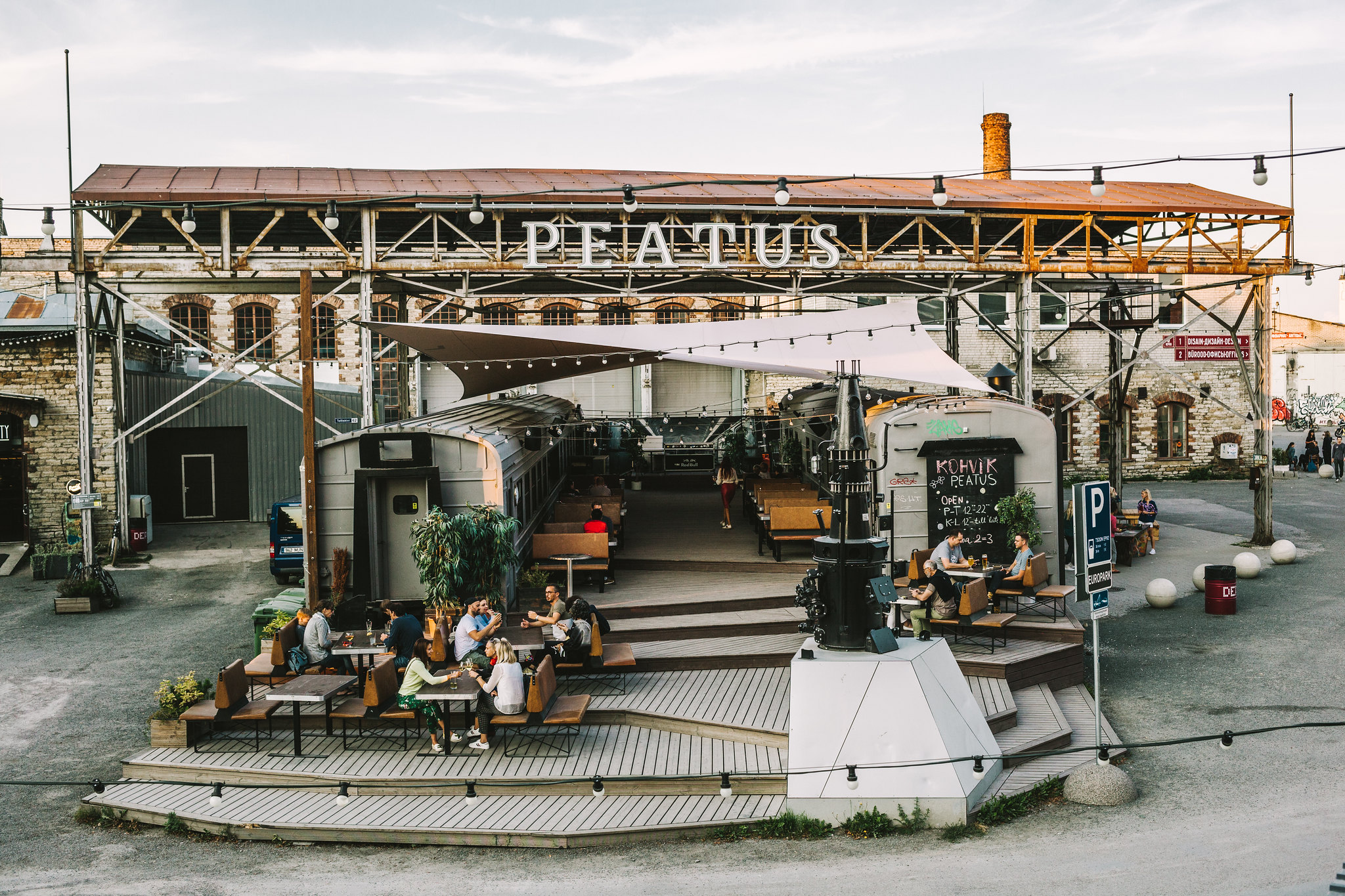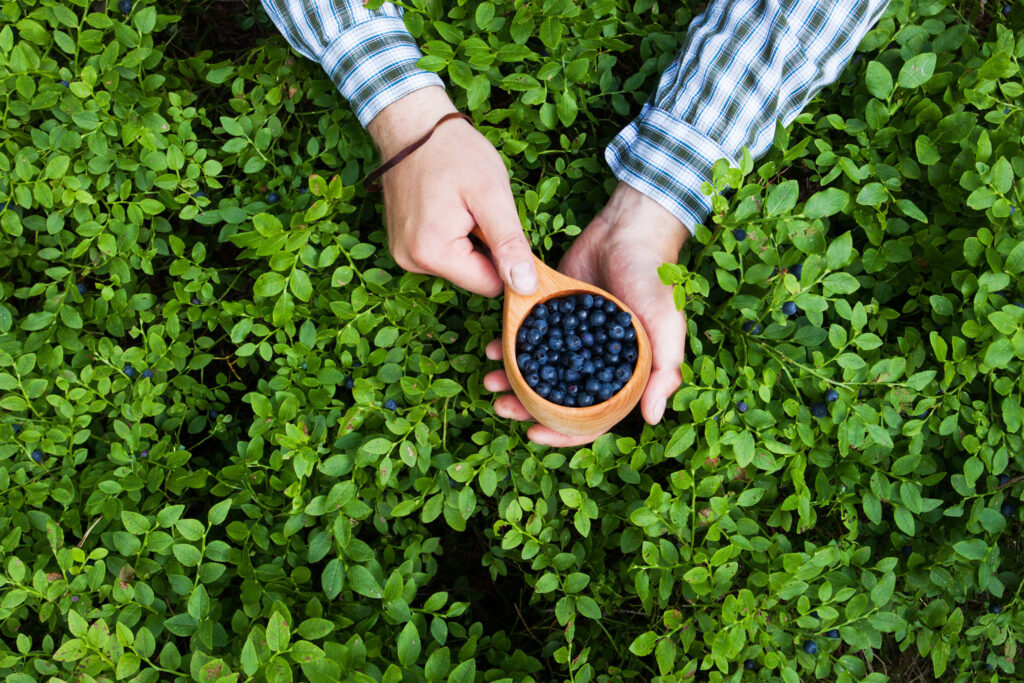9 THINGS THAT MAKE ESTONIA A NATURALLY SUSTAINABLE DESTINATION
In the race to achieve sustainability, Estonia has a gigantic head start. The country’s tiny population of just 1.3 million is spread over a territory larger than the Netherlands (or Belgium or Switzerland). Of that territory, as much as 70 percent is covered by forests and bogs. This dynamic not only contributes to the amazingly clean air – among the cleanest in the world, according to the WHO – it also means that wilderness is never far away, either physically or spiritually, from the people. It’s part of what gives Estonians that nature-loving, Nordic mindset that makes them hyper-aware of the impact they’re having on the environment. Here are a few of the other factors that make Estonia a sustainable travel destination:
Small-scale, walkable cities

Size matters, especially when you’re looking for a low-impact way to get from place to place. Luckily, Estonia’s cities are miniscule and compact by world standards. The short distances mean that visitors can simply walk to where they’re going, with most hotels, meeting venues, restaurants, sights and shops easily reachable on foot. Airports and other transport hubs are also remarkably central, minimizing travel distances. All this cuts down on the need for long rides in polluting taxis and transfer buses, not to mention time wasted in traffic jams. Likewise, anyone organising an out-of-town programme (see below) will find some great options available within just a few kilometres of the city limits.
Free rides and green rides

In those cases where your destination really is too far to walk, public transportation is a relatively sustainable option. Estonia’s capital, Tallinn, runs an extensive system of buses, trams and electric trolleys, all of which use a contactless, paper-free ticketing system. As part of an effort to encourage a greener lifestyle, the city has made the system free to use for registered city residents, as well as to visitors attending international events, provided organisers apply ahead of time. More active visitors to can also opt to use one of the bike sharing systems available such as Bikeep in Tallinn and Tartu Smart Bike Share in Tartu.
Digital and paper-free

It takes just two seconds of Googling to find out that Estonia is among the world’s most advanced digital societies. Countless government and private-sector services are provided online, and digital signatures are the rule rather than the exception. All of this means there’s rarely any need to print out or carry papers. Visitors and event organisers can take full advantage of the trend, making use of the almost universally available free Wi-Fi to skip any printing of brochures, programmes and presentations.
Sustainability on the menu

Mushrooms and berries hand-picked from the forest, home-baked rye bread, wild game, pike perch, dill, onions… in short, anything that’s local, fresh and seasonal is what Estonians crave when they dine out in a fine restaurant. The country’s chefs have duly followed suit – many of the nation’s award-winning restaurants these days specialise in modern Nordic cuisine, a culinary style that emphasises quality natural ingredients that didn’t have to travel across continents to reach the plate. In fact, it’s possible to have a fully catered gala dinner where the food is 100% locally sourced from right here in Estonia. Some restaurateurs have taken the sustainability concept even further. The Fotografiska gallery’s acclaimed rooftop restaurant, for example, has a strict zero-waste policy.
Second life

If you’re following the three Rs of sustainability (reduce, reuse, recycle), you’ll be happy to know that Estonia can more than accommodate. A fair number of meeting venues and event organisers practice waste sorting and recycling. Several popular event venues themselves are recycled in a sense, repurposed from an old power station, a seaplane hangar and a submarine factory. As these unusual spaces don’t require any added décor to make a lasting impression, that’s less material for you to buy and use.
Responsible shopping

You can shop sustainability by visiting one of the vintage and second-hand stores found in the cities. And if you’re looking for gifts that won’t end up in a landfill, you can opt for drinkable or edible products (handmade chocolates and Muhu bread are popular), practical items like bags or fashion accessories made from recycled material, or locally-produced organic cosmetics.
Low-impact and eco experiences

Groups who want to discover Estonia the sustainable way have a wide array of activities and experiences to choose from. An organised morning run through a city park, a cycle tour or even a kayak tour makes a fantastic, low-impact way to explore the urban landscape. Out-of-town options include a guided nature walk through one of Estonia’s famous peat bogs and a hike though a picturesque forest, complete with mushroom and berry picking if the season is right. To take a more hands-on approach to sustainability, groups can take part in a tree-planting session or attend a design workshop such as the one offered by the Stella Soomlais studio where participants make leather bracelets from leftovers.
Environmentally friendly hotels & venues

Many accommodation establishments in Estonia carry the Green Key label, an international environmental certification affirming that the hotels meet ultra-strict standards on everything from water and energy use to local sourcing of food, chemical use, waste management and more. Travellers who are concerned for the environment can opt for a Green Key hotel and know that they are making the most eco-friendly choice possible.
World Cleanup Day

Time was when Skype was Estonia’s most famous export, but now that’s being rivalled by World Cleanup Day, an environmental initiative born in Estonia in 2008 as the ‘Let’s Do It!’ campaign. The idea back then was to have as many people from all over the country come out on a single day to cleanup trash from forests, fields, beaches and wherever they could find it. As many as 50,000 people turned up, cleaning up the entire country in just 5 hours. The simple but compelling idea has since taken off on a global scale. Organised by the Estonian-based Let’s Do It World, the annual World Cleanup Day is now easily the planet’s biggest civic environmental project, attracting 11 million participants from 164 countries in 2020.
Further Information
If you have any questions, please get in touch with us here at the ECB. Our team is always ready to help!

Marketing Manager
Posted: 18.06.2023
Categories: Green Meetings | Blog | Conferences | Destination


